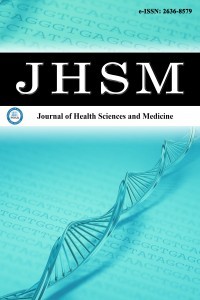1.
Bray F, Laversanne M, Sung H, et al. Global cancer statistics 2022: GLOBOCAN estimates of incidence and mortality worldwide for 36 cancers in 185 countries. <em>CA Cancer J Clin</em>. 2024;74(3):229-263. doi:10.3322/caac.21834
2.
Petty WJ, Paz-Ares L. Emerging strategies for the treatment of small cell lung cancer: a review. <em>JAMA Oncol</em>. 2023;9(3):419-429.
3.
Rudin CM, Brambilla E, Faivre-Finn C, Sage J. Small-cell lung cancer. <em>Nat Rev Dis Primers</em>. 2021;7(1):3.
4.
Wen Y, Zhu Y, Zhang C, et al. Chronic inflammation, cancer development and immunotherapy. <em>Front Pharmacol</em>. 2022;13: 1040163. doi:10.3389/fphar.2022.1040163
5.
Liu J, Li S, Zhang S, et al. Systemic immune-inflammation index, neutrophil-to-lymphocyte ratio, platelet-to-lymphocyte ratio can predict clinical outcomes in patients with metastatic non-small-cell lung cancer treated with nivolumab.<em>J Clin Lab Anal</em>. 2019;33(8):e22964. doi:10.1002/jcla.22964
6.
Mandaliya H, Jones M, Oldmeadow C, Nordman IIC. Prognostic biomarkers in stage IV non-small cell lung cancer (NSCLC): neutrophil to lymphocyte ratio (NLR), lymphocyte to monocyte ratio (LMR), platelet to lymphocyte ratio (PLR) and advanced lung cancer inflammation index (ALI). <em>Transl Lung Cancer Res</em>. 2019;8(6):886-894. doi:10.21037/tlcr.2019.11.16
7.
Platini H, Ferdinand E, Kohar K, et al. Neutrophil-to-lymphocyte ratio and platelet-to-lymphocyte ratio as prognostic markers for advanced non-small-cell lung cancer treated with immunotherapy: a systematic review and meta-analysis. <em>Medicina (B Aires)</em>. 2022;58(8):1069.
8.
Smith D, Raices M, Cayol F, Corvatta F, Caram L, Dietrich A. Is the neutrophil-to-lymphocyte ratio a prognostic factor in non-small cell lung cancer patients who receive adjuvant chemotherapy? <em>Semin Oncol</em>. 2022;49(6):482-489.
9.
Yang XC, Liu H, Liu DC, Tong C, Liang XW, Chen RH. Prognostic value of pan-immune-inflammation value in colorectal cancer patients: a systematic review and meta-analysis. <em>Front Oncol</em>. 2022;12:1036890. doi:10.3389/fonc.2022.1036890
10.
Baba Y, Nakagawa S, Toihata T, et al. Pan-immune-inflammation value and prognosis in patients with oesophageal cancer. <em>Ann Surg Open</em>. 2021;3(1):e113. doi:10.1097/AS9.0000000000000113
11.
Susok L, Said S, Reinert D, et al. The pan-immune-inflammation value and systemic immune-inflammation index in advanced melanoma patients under immunotherapy. <em>J Cancer Res Clin Oncol</em>. 2022;148(11):3103-3108. doi:10.1007/s00432-021-03878-y
12.
Yekedüz E, Tural D, Ertürk İ, et al. The relationship between pan-immune-inflammation value and survival outcomes in patients with metastatic renal cell carcinoma treated with nivolumab in the second line and beyond: a Turkish oncology group kidney cancer consortium (TKCC) study. <em>J Cancer Res Clin Oncol</em>. 2022; 148(12):3537-3546. doi:10.1007/s00432-022-04055-5
13.
Lin F, Zhang LP, Xie SY, et al. Pan-immune-inflammation value: a new prognostic index in operative breast cancer. <em>Front Oncol</em>. 2022;12:830138. doi:10.3389/fonc.2022.830138
14.
Gambichler T, Said S, Abu Rached N, et al. Pan-immune-inflammation value independently predicts disease recurrence in patients with Merkel cell carcinoma. <em>J Cancer Res Clin Oncol</em>. 2022;148(11):3183-3189. doi:10.1007/s00432-022-03929-y
15.
Zhu M, Zhou Y, Liu Z, et al. Diagnostic Efficiency of Pan-Immune-Inflammation Value to Predict Prostate Cancer in Patients with Prostate-Specific Antigen between 4 and 20 ng/ml. <em>J Clin Med</em>. 2023;12(3):820. doi:10.3390/jcm12030820
16.
Zhang N, Hou T, Zhang S, et al. Prognostic significance of pan-immune-inflammation value (PIV) in nasopharyngeal carcinoma patients. <em>Heliyon</em>. 2024;10(2):e24804.
17.
Murat B, Murat S, Ozgeyik M, Bilgin M. Comparison of pan-immune-inflammation value with other inflammation markers of long-term survival after <scp>ST</scp> -segment elevation myocardial infarction. <em>Eur J Clin Invest</em>. 2023;53(1):e13872.
18.
Guven DC, Sahin TK, Erul E, Kilickap S, Gambichler T, Aksoy S. The Association between the Pan-Immune-Inflammation Value and Cancer Prognosis: A Systematic Review and Meta-Analysis. <em>Cancers (Basel)</em>. 2022;14(11):2675. doi:10.3390/cancers14112675
19.
Fucà G, Guarini V, Antoniotti C, et al. The Pan-Immune-Inflammation Value is a new prognostic biomarker in metastatic colorectal cancer: results from a pooled-analysis of the Valentino and TRIBE first-line trials. <em>Br J Cancer</em>. 2020;123(3):403-409.
20.
Fu F, Deng C, Wen Z, et al. Systemic immune-inflammation index is a stage-dependent prognostic factor in patients with operable non-small cell lung cancer. <em>Transl Lung Cancer Res</em>. 2021;10(7):3144-3154. doi:10.21037/tlcr-21-267
21.
Kucuk A, Topkan E, Ozkan EE, Ozturk D, Pehlivan B, Selek U. A high pan-immune-inflammation value before chemoradiotherapy indicates poor outcomes in patients with small-cell lung cancer. <em>Int J Immunopathol Pharmacol</em>. 2023;37: 3946320231187759. doi:10.1177/03946320231187759
22.
Topkan E, Kucuk A, Ozkan EE, et al. High pre-chemoradiotherapy pan-immune-inflammation value levels predict worse outcomes in patients with stage IIIB/C non-small-cell lung cancer.<em>Discov Oncol</em>. 2023;14(1):230. doi:10.1007/s12672-023-00851-8
23.
Zhai WY, Duan FF, Lin YB, et al. Pan-Immune-Inflammatory Value in Patients with Non-Small-Cell Lung Cancer Undergoing Neoadjuvant Immunochemotherapy. <em>J Inflamm Res</em>. 2023;16: 3329-3339. doi:10.2147/JIR.S418276
24.
Chen Y, Gong L, Gu P, et al. Pan-immune-inflammation and its dynamics: predictors of survival and immune-related adverse events in patients with advanced NSCLC receiving immunotherapy. <em>BMC Cancer</em>. 2023;23(1):944.
25.
Chen X, Hong X, Chen G, et al. The Pan-immune-inflammation value predicts the survival of patients with anaplastic lymphoma kinase-positive non-small cell lung cancer treated with first-line ALK inhibitor. <em>Transl Oncol</em>. 2022;17:101338.
26.
Wang Y, Li Y, Chen P, Xu W, Wu Y, Che G. Prognostic value of the pretreatment systemic immune-inflammation index (SII) in patients with non-small cell lung cancer: a meta-analysis. <em>Ann Transl Med</em>. 2019;7(18):433-433. doi:10.21037/atm.2019.08.116
27.
Mazzella A, Maiolino E, Maisonneuve P, Loi M, Alifano M. Systemic inflammation and lung cancer: is it a real paradigm? prognostic value of inflammatory indexes in patients with resected non-small-cell lung cancer. <em>Cancers (Basel)</em>. 2023;15(6):1854.
28.
Li C, Wu J, Jiang L, et al. The predictive value of inflammatory biomarkers for major pathological response in non-small cell lung cancer patients receiving neoadjuvant chemoimmunotherapy and its association with the immune-related tumor microenvironment: a multi-center study. <em>Cancer Immunol Immunother</em>. 2023;72(3):783-794.
29.
Huang T, Zhang H, Zhao Y, et al. Systemic immune-inflammation index changes predict outcome in stage III non-small-cell lung cancer patients treated with concurrent chemoradiotherapy. <em>Future Oncology</em>. 2021;17(17):2141-2149. doi:10.2217/fon-2020-1272
</ol>
<p>

